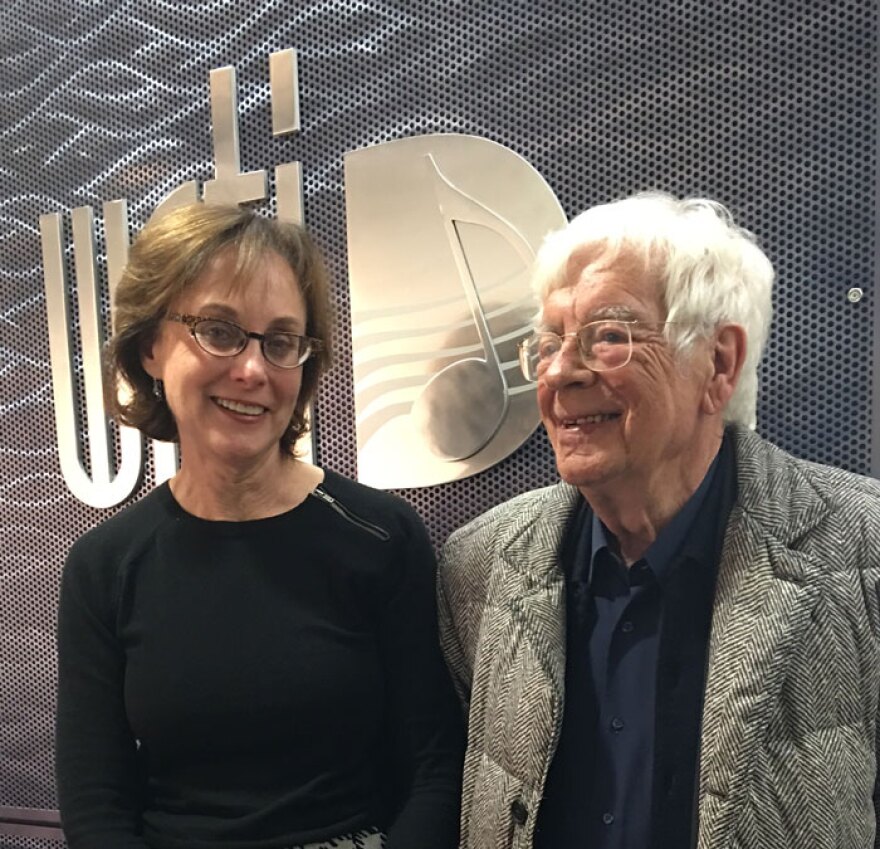How does a lifelong interest in the choral works of J.S. Bach maintain a luster that continues to this day? World-renowned German conductor, scholar, and teacher Helmuth Rilling gives WRTI’s Meridee Duddleston some insight.

Helmuth Rilling’s first trip to the United States in July, 1970 was precipitated by an invitation from local choral conductor and friend, the late Elaine Brown. Brown taught at Temple’s Boyer College of Music and Dance and founded the Philadelphia-based Singing City choir. Rilling conducted Temple's choir at the Temple University Music Festival and Instiute in Bach’s motets during that first visit that lasted for three weeks. So, it’s fitting, says Rilling, that he’s here to conduct the choir again. He'll lead the Temple University Concert Choir and Graduate Conductors Chorus in a free performance of Bach’s motets on Saturday, April 16th at 7:30 pm in Center City, Philadelphia at the Church of the Holy Trinity on Rittenhouse Square.
The Bach scholar, educator and founder of choirs, collegia, and academies ranks the few motets Bach wrote as among his most important pieces. That’s because the motets enabled Bach to create a more powerful sound by combining the small choirs from the Leipzig churches in which he served as cantor. A choir as large as 30 voices could sing the motets - a huge ensemble for Bach's time.
"Knowing Bach was a miracle for me, and still is." - Helmuth Rilling
For Rilling, part of Bach’s allure is his ability to express profound feelings by stepping back and guiding the music around the meaning of mostly liturgical texts or hymns. He says the same is true for students learning to translate the text into music. “It’s a wonderful challenge to find out the ways to do that, not only correctly, but always with a lot of emotion.”
Radio script:
MUSIC: Helmuth Rilling conducting an ensemble of choirs in J.S. Bach's Cantata, BWV 100 ("What God doth, that is rightly done"), composed between 1732 and 1735
Helmuth Rilling: As a conductor you are always the servant of the composer.
Meridee Duddleston: Born in Stuttgart, Germany, Helmuth Rilling is known and celebrated around the globe for his grasp of vocal music - particularly J.S. Bach’s chorales, cantatas, passions, motets, oratorios, and masses - choral music that brings joy that transfixes and soothes. Rilling has conducted and recorded this Baroque trove for more than 50 years - with a loving dedication that’s solid and evolved.
HR: I think one has always to change. One can see in Bach’s own music that he changed. His earlier works are different from his last works like the Mass in B minor...and so I think that every performance that you do with the same piece should be different from what you have done before. It should always be alive.
MD: Now, in his 80s, Rilling’s abiding enchantment is clear.
HR: Knowing Bach was a miracle for me, and still is.
MD: Those of us who are moved by Bach’s choral works may not be aware of it, but we’ve benefited by Helmuth Rilling’s devotion.
Helmuth Rilling will conduct Temple University choirs in five of Bach’s great motets on April 16th:
BACH: "Singet dem Herr ein neues Lied"
BACH: "Der Geist hilft unser Schwachheit auf"
BACH: "Jesu, meine Freude"
BACH: "Fürchte dich nicht, ich bin bei dir"
BACH: "Komm, Jesu, komm"


